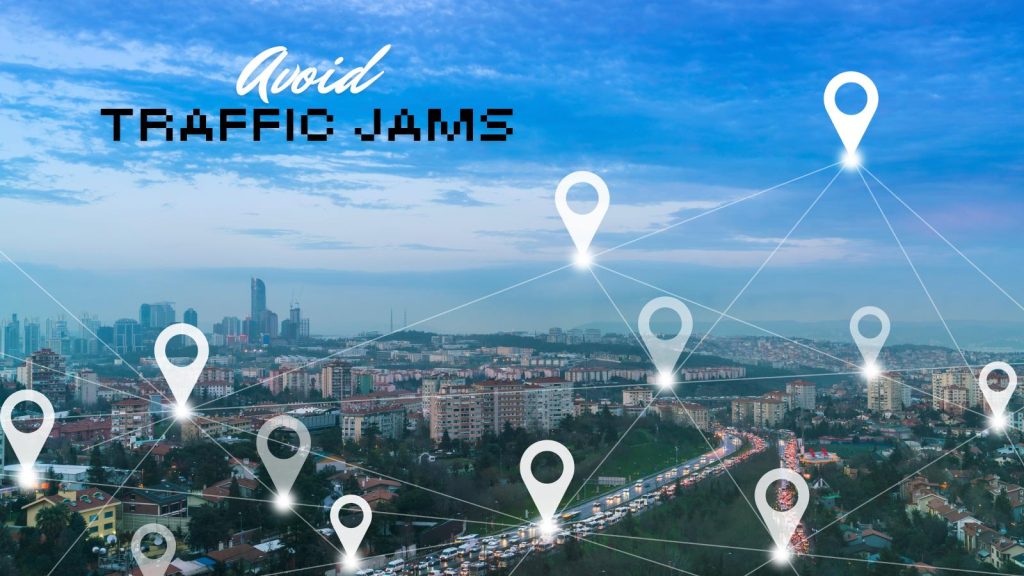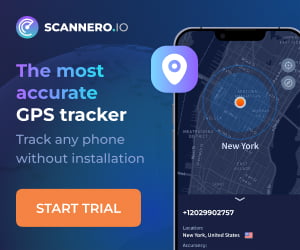Have you ever wondered how to ensure your employees’ business travel stays productive and safe? You’re not alone. Many businesses are turning to GPS trackers for a reliable solution.
This technology doesn’t just monitor trips; it boosts efficiency and cuts costs. You’ll also gain peace of mind knowing your team is safe on the road.
Sure, concerns about privacy and tracking exist, but with the right policies, these can be managed.
In this post, I’ll explore why more companies are adopting GPS trackers and how you can use them to your advantage.
Table of Contents
Understanding GPS Tracking Technology
GPS tracking technology plays a crucial role in modern business travel management. It keeps tabs on your employees’ movements, ensuring they are on track and safe.
To use this technology effectively, it’s essential to grasp its basics. This section will break down GPS tracking, how it works, and its applications in business travel.
What is GPS Tracking?
GPS stands for Global Positioning System. It’s a technology that pinpoints the location of a person or object using satellites. Originally developed by the U.S. Department of Defense in the 1970s, GPS was meant for military use.
By the 1980s, it became available for civilian use. Today, GPS devices are everywhere—from smartphones to car navigation systems.
In simple terms, GPS tracking involves using a GPS device to monitor the location of an individual or an asset such as a vehicle. It has evolved over the years and is now more accurate and accessible.
How A GPS Tracker Works
Ever wondered how GPS tracking figures out where you are? Here’s a simple breakdown:
- Satellites: GPS works by using a network of around 30 satellites orbiting the Earth. These satellites send out signals that contain their location and the exact time the signals are sent.
- Receivers: A GPS tracker device, such as a smartphone or a specialized tracking gadget, receives these signals. To determine your exact location, the device needs signals from at least four satellites.
- Triangulation: The receiver uses a method called triangulation. It calculates the distance to each satellite based on the time it took for the signals to reach the device. The more satellites available, the more accurate the location data.
- Software: The data is then processed by specialized software that converts it into a readable format. This software can display the location on a map, track movements over time, and even set up geofences (virtual boundaries).
Applications in Business Travel
Businesses utilize GPS tracking for a variety of travel management purposes. Here are a few ways companies can benefit:
- Real-time Monitoring: Know where your employees are at any given moment. This is crucial for safety and ensuring that they are following the planned route.
- Route Optimization: GPS tracking helps in choosing the most efficient route, saving both time and fuel costs. It reduces unnecessary detours and delays.
- Expense Management: By tracking mileage and travel times, companies can better manage expenses and reimbursements. This data helps in creating more accurate and fair travel claims.
- Employee Safety: In the event of an emergency, knowing the precise location of your employees can make a huge difference. It allows for quicker response times and ensures employee safety.
- Compliance and Accountability: Instill a sense of accountability by making employees aware that their travel routes and stops are being monitored. It ensures compliance with company policies and reduces unauthorized detours or stops.
Incorporating GPS tracking into business travel management is not just about keeping tabs on your employees. It’s about making smarter, data-driven decisions that improve efficiency, cut costs, and enhance safety.
It may actually be a way to keep your employees on as you will save money with a GPS tracking system.
Stay tuned for more insights on how GPS tracking can revolutionize your business travel operations.
Benefits of Using GPS Trackers for Business Travel
When it comes to managing business travel, GPS trackers bring a host of benefits. They not only help in keeping an eye on your employees but also improve safety, accountability, and cost efficiency.
Here’s a closer look at how GPS tracking can make a difference.
Enhanced Employee Safety With GPS Trackers
Safety is a big concern for businesses when employees are on the road. GPS trackers can make a huge impact here.
- Real-Time Location: Knowing the exact location of your employees at any given moment is crucial. If there’s an emergency or an unexpected situation, you can respond quickly.
- Geofencing: This feature lets you set up virtual boundaries. If an employee leaves a designated area, you’ll get an alert. This can be particularly useful in high-risk areas.
- Emergency Assistance: Many GPS trackers come with an SOS button. If an employee finds themselves in danger, they can press the button to send an immediate alert to their employer or emergency services.

Improved Accountability and Transparency
Fostering accountability and transparency is easier with GPS tracking.
- Track Routes: Employees know their routes are being monitored. This reduces the temptation to take unnecessary detours or extend their trips without permission.
- Proof of Travel: The best vehicle GPS tracker data provides concrete proof of where an employee has been. This is helpful for resolving any disputes about travel claims or work hours.
- Policy Enforcement: Monitoring ensures employees adhere to company travel policies. It also discourages unauthorized stops and activities during business trips.
Cost Savings and Efficiency
GPS tracking can also help in saving money and boosting efficiency.
- Optimized Routes: GPS trackers can suggest the best routes to take. This helps in saving fuel and time by avoiding traffic jams and unnecessary detours.
- Reduced Idle Times: By keeping an eye on travel times and routes, companies can minimize idle times and improve productivity.
- Accurate Expense Management: GPS tracking provides precise data on mileage and travel times. This makes it easier to manage expenses and avoid over-reimbursement.
- Prevent Vehicle Misuse: Monitoring vehicles ensures they are used strictly for business purposes, reducing wear and tear and extending their lifespan.
Incorporating GPS tracking into your business travel management isn’t just about keeping tabs on your employees. It’s about making smarter, data-driven decisions that improve productivity, cut costs, and enhance safety.
Challenges and Concerns of a GPS Tracker
While GPS tracking offers many benefits for managing business travel, it also comes with its own set of challenges and concerns.
Let’s examine some of the key issues that businesses and employees might face when implementing this newer technology.
Privacy Concerns
Employees may feel uneasy about being tracked, fearing that their privacy is being invaded. GPS tracking can collect a lot of data about a person’s whereabouts, which can lead to significant concerns.
- Personal Time: Employees might worry about being tracked outside of work hours. It’s crucial to assure them that tracking will only occur during work-related activities.
- Data Security: The data collected through GPS tracking can be sensitive. Ensuring that this information is stored securely and only accessible to authorized personnel can help alleviate fears.
- Transparency: Being transparent about why and how you are using GPS tracking can reduce skepticism. Detailed policies that outline the scope and limits of tracking are essential.
Legal Implications
Using GPS to monitor employees isn’t just a matter of installing some software and devices. There are legal aspects that need to be considered.
- Compliance with Laws: Different countries and states have laws regulating employee tracking. It’s essential to know the local regulations to avoid legal troubles.
- Consent: In many jurisdictions, you need to obtain explicit consent from employees before tracking them. This means informing them about the tracking and getting their written agreement.
- Union Agreements: If your workforce is unionized, you might need to negotiate the terms of GPS tracking with the union. Failure to do so can result in legal challenges or labor disputes.
Employee Trust and Morale
Tracking your employees can impact their trust and morale. If not handled carefully, it can create a sense of mistrust and lower job satisfaction.
Discuss openly why GPS tracking is being implemented and how it will benefit both the company and the employees. Open lines of communication can help build trust.
Frame the tracking as a tool for safety and efficiency rather than as a way to micromanage. Highlight the positive aspects, like quicker emergency responses and reduced travel stress.
Allow employees to voice their concerns and provide feedback about the tracking system. Actively listening and making necessary adjustments can improve morale and acceptance.
By addressing these challenges thoughtfully, businesses can implement GPS tracking in a way that respects employees’ rights and fosters a positive work environment.
Implementing a GPS Tracker in Your Business
Introducing a GPS tracker system into your business can revolutionize how you manage employee travel.
From choosing the right system to training employees and managing data, here’s a step-by-step guide to help you get started.
Choosing the Right GPS Tracker
Selecting the right GPS tracking system is crucial. Here are some tips to help you make the best choice for your business needs:
- Assess Your Needs:
- What do you want to achieve with GPS tracking? Is it about real-time monitoring, route optimization, or both?
- Consider the size of your fleet or the number of employees you need to track.
- Features to Look For:
- Real-Time Tracking: Ensure the system offers live tracking features.
- Geofencing: This feature allows you to set virtual boundaries and get alerts when they are crossed.
- Data Storage: Look for systems that store data for analysis and reporting.
- User-Friendly Interface: The dashboard and app should be easy to navigate.
- Budget Considerations:
- Compare the cost of different systems. Don’t just consider the upfront cost; look at subscription fees, maintenance costs, and potential upgrades.
- Some systems offer free trials. Take advantage of these to test the system before committing.
- Vendor Support and Reliability:
- Choose vendors with good customer reviews and reliable customer support.
- Ensure the system has good uptime and technical support for troubleshooting issues.
Training Employees
Successfully implementing a GPS tracking system requires employee training. Here’s how to do it effectively:
- Clear Communication:
- Explain the reasons behind using GPS tracking. Employees are more likely to be cooperative if they understand the benefits.
- Emphasize how it will help improve safety and efficiency, rather than just monitoring.
- Hands-On Training Sessions:
- Organize training sessions where employees can learn how to use GPS devices and apps.
- Provide step-by-step guides and hands-on practice to build familiarity.
- Make Training Resources Accessible:
- Create user manuals and video tutorials that employees can refer to as needed.
- Ensure these resources are easy to access, whether online or through an internal portal.
- Ongoing Support:
- Set up a helpdesk or assign a point of contact for any questions or issues employees may have.
- Schedule periodic refresher training sessions to reinforce learning and introduce new features.
- Empower Employees:
- Encourage feedback from employees on how the system can be improved.
- Act upon useful suggestions to show that their input is valued.
Monitoring and Managing Data
Once your GPS tracking system is up and running, monitoring and managing the collected data is essential:
- Real-Time Monitoring:
- Regularly check the dashboard for real-time updates on employees’ locations and travel routes.
- Use alerts and notifications to stay informed about any deviations or emergencies.
- Analyze Historical Data:
- Review past data to identify patterns and trends. This can help in optimizing routes and managing travel expenses.
- Look for excessive idling, over-speeding, and unauthorized stops to address any issues proactively.
- Generate Reports:
- Use the system’s reporting features to generate detailed reports on travel times, mileage, and employee performance.
- Share these reports with relevant teams to improve decision-making and operational efficiency.
- Data Security and Privacy:
- Ensure that the data collected is secure and complies with privacy regulations.
- Limit access to sensitive data to authorized personnel only.
- Review and Improve:
- Periodically review the system’s performance and the impact it has on your business.
- Make necessary adjustments to features and usage policies to enhance effectiveness.
By carefully selecting the right GPS tracking system, providing thorough training, and diligently managing the data, you can ensure a smooth implementation that benefits both your business and your employees.
Conclusion: GPS Tracker For Your Small Biz
Implementing GPS trackers for business travel can transform how you manage your employees on the road. These tools improve safety, optimize routes, and provide real-time monitoring, ensuring that your team stays efficient and secure.
GPS tracking also helps manage costs and enforces company policies, creating a structured and accountable travel system.
Addressing concerns such as privacy and legal implications is crucial. Being transparent with your employees and complying with local laws will foster trust and acceptance.
With the right system, employee training, and effective data management, your business can reap the benefits.
Consider integrating GPS trackers into your business travel strategy. The efficiency gains and enhanced safety make it a worthwhile investment.
Have you used GPS trackers for your business? I’d love to hear about your experiences in the comments below.
GPS Tracker for Business Travel: Boost Efficiency and Safety Share on X




